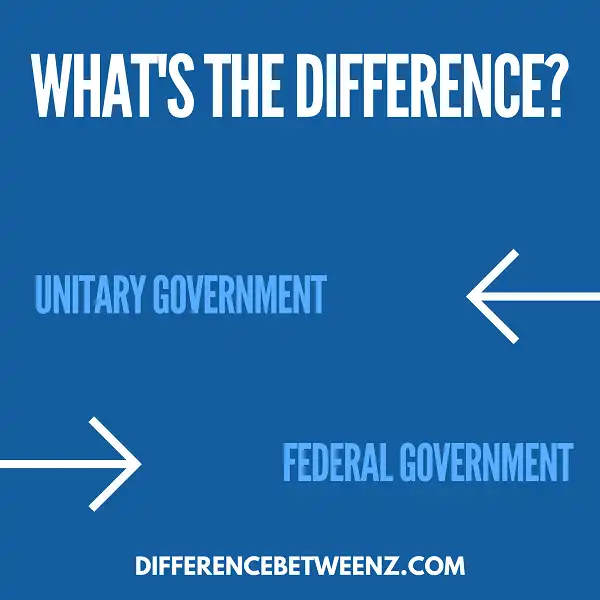When it comes to government, there are two main types: unitary and federal. Unitary government is a type of centralism where all power resides in the hands of a single central authority. Federal government, on the other hand, is a type of dualism or confederalism where power is divided between two levels of government. So what are the key differences between these two types of governments? Let’s take a closer look.
What is Unitary Government?
A unitary government is a form of government in which the power is centralized in a single entity. This entity may be a person, group, or organization. A unitary government is often contrasted with a federal government, in which power is divided between multiple entities.
- The centralization of power in unitary government can have several advantages. First, it can make decision-making more efficient. Second, it can allow for more unified action on behalf of the government.
- Third, it can help to prevent the rise of factions and provide for greater stability. However, the unitary government can also lead to abuse of power and tyranny.
- As such, it is important to ensure that checks and balances are in place to prevent the abuse of power by those in charge of the unitary government.
A unitary government is a type of government that has many benefits and drawbacks. Its strengths and weaknesses must be weighed carefully before deciding whether or not to implement this type of system.
What is Federal Government?
- The federal government is the national government of a country, typically a republic. It is composed of three branches–executive, legislative, and judicial–and functions at both the national and local levels.
- The Federal Government is responsible for such things as defense, foreign affairs, taxation, and social welfare. Each branch of the Federal Government has its own specific powers and responsibilities.
- The executive branch is responsible for carrying out the laws; the legislative branch makes the laws, and the judicial branch interprets the laws. Federal governments can be found in countries all over the world.
Difference between Unitary Government and Federal Government
Unitary government and federal government are two types of political systems that are used by different countries around the world. The main difference between unitary government and the federal government is that unitary government is a centralized system where all the power is concentrated in a single central authority.
- On the other hand, the federal government is a decentralized system where authority is divided between a central government and smaller regional units. Unitary governments are more common in small countries while federal governments are more prevalent in large countries.
- Unitary governments are often efficient because there is only one central authority making decisions. This can help to avoid conflict and delay in decision-making. However, unitary governments can be less responsive to the needs of citizens because the decisions are made by a single central authority.
- Federal governments are often more responsive to the needs of citizens because decisions are made by both the central government and smaller regional units. However, federal governments can be less efficient because there is more than one authority making decisions which can lead to conflict and delay in decision-making.
The type of government that a country chooses should be based on its needs and preferences. Unitary governments are better suited for small countries while federal governments are better suited for large countries.
Conclusion
The United States of America was founded on the belief in federalism, which is the sharing of power between national government and state governments. This system has evolved over time to create a federal government with three separate branches: the executive branch, legislative branch, and judicial branch.
While this type of government is common around the world, there is another form of government that is also popular – unitary government. In a unitary government, all power resides within the central government and states have no authority to pass their own laws. Unitary governments are often found in countries that are smaller or more densely populated than those with federal systems.


